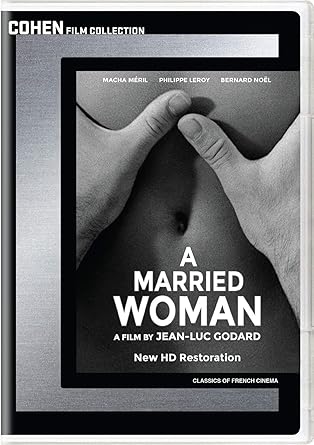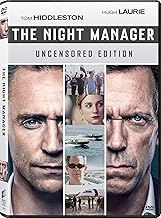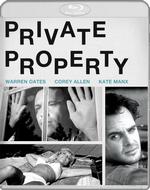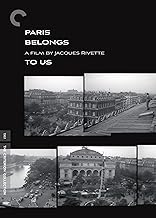The Best DVDs and Blu-rays of 2016
 The Danish Girl (2015) by Tom Hooper. A fictitious love story loosely inspired by the lives of Danish artists Lili Elbe (Eddie Redmayne) and Gerda Wegener (Alicia Vikander). Lili and Gerda’s marriage and work evolve as they navigate Lili’s groundbreaking journey as a transgender pioneer. Co-stars Ben Whishaw, Sebastian Koch, Amber Heard, Matthias Schoenaerts.
The Danish Girl (2015) by Tom Hooper. A fictitious love story loosely inspired by the lives of Danish artists Lili Elbe (Eddie Redmayne) and Gerda Wegener (Alicia Vikander). Lili and Gerda’s marriage and work evolve as they navigate Lili’s groundbreaking journey as a transgender pioneer. Co-stars Ben Whishaw, Sebastian Koch, Amber Heard, Matthias Schoenaerts.
High Rise (2015) Dr. Robert Laing, the newest resident of a luxurious apartment in a high-tech concrete skyscraper whose lofty location places him amongst the upper class. Life seems like paradise to the solitude-seeking Laing. But as power outages become more frequent and building flaws emerge, particularly on the lower floors, the regimented social strata begins to crumble and the building becomes a battlefield in a literal class war. Based on the novel by J.G. Ballard. Stars Tom Hiddleston, Sienna Miller, Luke Evans, Elisabeth Moss, Jeremy Irons.
 I, Anna (2015) Charlotte Rampling, Gabriel Byrne, Eddie Marsan, Hayley Atwell. The lives of a beautiful divorcee and a troubled detective intersect during the investigation of a vicious murder on the grimy, rain-soaked streets of London, sparking a tangled web of passion, intrigue and deceit. The modern film noir is told from the perspective of the intriguing woman, a key suspect in the murder case, who becomes an obsession for the detective in charge of the investigation.
I, Anna (2015) Charlotte Rampling, Gabriel Byrne, Eddie Marsan, Hayley Atwell. The lives of a beautiful divorcee and a troubled detective intersect during the investigation of a vicious murder on the grimy, rain-soaked streets of London, sparking a tangled web of passion, intrigue and deceit. The modern film noir is told from the perspective of the intriguing woman, a key suspect in the murder case, who becomes an obsession for the detective in charge of the investigation.
Labyrinth of Lies (2014 — Germany) Alexander Fehling. Drama exposes the post-war conspiracy of prominent German institutions and government branches to cover up the crimes of Nazis during World War II. Germany 1958. In those years, “Auschwitz” was a word that some people had never heard of, and others wanted to forget as quickly as possible. Against the will of his immediate superior, young prosecutor Johann Radmann begins to examine the case of a recently identified teacher who was a former Auschwitz guard. Radmann soon lands in a web of repression and denial, but also of idealization. He devotes himself with utmost commitment to his new task and is resolved to find out what really happened. He oversteps boundaries, falls out with friends, colleagues and allies, and is sucked deeper and deeper into a labyrinth of lies and guilt in his search for the truth. But what he ultimately brings to light will change the country forever. Germany’s Academy Award entry for Best Foreign-language Film.
 The Lady in the Car With Glasses and a Gun (2015 — France) Freya Mavor, Benjamin Biolay, Elio Germano, Stacy Martin. A stylish psychological thriller about a beautiful secretary who uses her absent boss’ blue Thunderbird to go joyriding in the South of France but ends up involved in murder and intrigue — and begins to doubt her own sanity. After she shuttles her boss and his family to the airport where they depart on a short vacation, Dany (Freya Mavor) decides to take a fantasy joyride along the Mediterranean coast — but her trip quickly turns into a nightmare. At every stop along the way, people recognize her — even though she’s never been there before. And to make matters worse, a dead body is discovered inside the trunk of the car. Has she lost her mind? Director and comic book writer Joann Sfar (“The Rabbi’s Cat,” “Gainsbourg: A Heroic Life”) puts his graphic novel background to good use here with interesting dissolves, split screens, diagrams, flashbacks, flashforwards and flashsideways super-saturated colors and oblique camerawork. It’s a fun and mysterious ride, highlighted by the gorgeous lead whom the camera just loves. The film is based on a novel by Sebastien Japrisot (“One Deadly Summer,” “A Very Long Engagement”); it was originally turned into a film of the same name in 1970 by Anatole Litvak with Samantha Eggar (as Dany), Oliver Reed, John McEnery and Stephane Audran.
The Lady in the Car With Glasses and a Gun (2015 — France) Freya Mavor, Benjamin Biolay, Elio Germano, Stacy Martin. A stylish psychological thriller about a beautiful secretary who uses her absent boss’ blue Thunderbird to go joyriding in the South of France but ends up involved in murder and intrigue — and begins to doubt her own sanity. After she shuttles her boss and his family to the airport where they depart on a short vacation, Dany (Freya Mavor) decides to take a fantasy joyride along the Mediterranean coast — but her trip quickly turns into a nightmare. At every stop along the way, people recognize her — even though she’s never been there before. And to make matters worse, a dead body is discovered inside the trunk of the car. Has she lost her mind? Director and comic book writer Joann Sfar (“The Rabbi’s Cat,” “Gainsbourg: A Heroic Life”) puts his graphic novel background to good use here with interesting dissolves, split screens, diagrams, flashbacks, flashforwards and flashsideways super-saturated colors and oblique camerawork. It’s a fun and mysterious ride, highlighted by the gorgeous lead whom the camera just loves. The film is based on a novel by Sebastien Japrisot (“One Deadly Summer,” “A Very Long Engagement”); it was originally turned into a film of the same name in 1970 by Anatole Litvak with Samantha Eggar (as Dany), Oliver Reed, John McEnery and Stephane Audran.
The Lobster (2016) by Yorgos Lanthimos. Stars Colin Farrell, Rachel Weisz, John C. Reilly, Lea Seydoux, Ben Whishaw. In a dystopian near future, single people, according to the laws of The City, are taken to The Hotel, where they are obliged to find a romantic partner in 45 days or are transformed into the animal of their choice and sent off into The Woods. 2015 Cannes Film Festival Jury Prize winner
 A Married Woman (1964) An often overlooked masterwork from Jean-Luc Godard’s most productive period. The plot appears to be simple: Charlotte (Macha Méril) is a young bourgeoise married woman having an affair with an actor. When she discovers that she’s pregnant, she must decide which man is the father and which man she will stay with. In Godard’s hands, however, the film, described as “a film about a woman’s beauty and the ugliness of her world,” is also a biting critique of consumer culture and the media constructed obsession with image. Subtitled “Fragments of a Film Shot in 1964,” in black and white, Godard creates a modernist collage that is beautifully shot by the director’s longtime cinematographer Raoul Coutard. Presented for the first time in the U.S., in a stunning new HD restoration from the original negative.
A Married Woman (1964) An often overlooked masterwork from Jean-Luc Godard’s most productive period. The plot appears to be simple: Charlotte (Macha Méril) is a young bourgeoise married woman having an affair with an actor. When she discovers that she’s pregnant, she must decide which man is the father and which man she will stay with. In Godard’s hands, however, the film, described as “a film about a woman’s beauty and the ugliness of her world,” is also a biting critique of consumer culture and the media constructed obsession with image. Subtitled “Fragments of a Film Shot in 1964,” in black and white, Godard creates a modernist collage that is beautifully shot by the director’s longtime cinematographer Raoul Coutard. Presented for the first time in the U.S., in a stunning new HD restoration from the original negative.
The Neon Demon (2016) by Nicolas Winding Refn (“Drive”). Stars: Elle Fanning, Keanu Reeves, Christina Hendricks, Jena Malone, Abbey Lee, Bella Heathcote, Desmond Harrington, Jamie Clayton, Alessandro Nivola. Jesse (Fanning) moves to Los Angeles just after her 16th birthday to launch a career as a model. The head of her agency tells the innocent teen that she has the qualities to become a top star, and Jesse soon faces the wrath of ruthless vixens who despise her fresh-faced beauty. On top of that, she must contend with a seedy motel manager and a creepy photographer. As Jesse starts to take the fashion world by storm, her personality changes in ways that could help her against her cutthroat rivals. Gorgeously shot but pretty creepy.
 The Night Manager (2016) Hugh Laurie and Tom Hiddleston lead an incredible British cast in the intense BBC One/AMC spy thriller in its original, uncensored version. Miniseries based on John le Carré’s best-selling spy novel follows hotel manager Jonathan Pine (Hiddleston) in his quest to bring down international arms dealer Richard Roper (Hugh Laurie). After being recruited by a British intelligence officer to infiltrate Roper’s inner circle, Pine is thrust into a world of international intrigue – but in his quest to do the right thing, Pine must first become a criminal himself.
The Night Manager (2016) Hugh Laurie and Tom Hiddleston lead an incredible British cast in the intense BBC One/AMC spy thriller in its original, uncensored version. Miniseries based on John le Carré’s best-selling spy novel follows hotel manager Jonathan Pine (Hiddleston) in his quest to bring down international arms dealer Richard Roper (Hugh Laurie). After being recruited by a British intelligence officer to infiltrate Roper’s inner circle, Pine is thrust into a world of international intrigue – but in his quest to do the right thing, Pine must first become a criminal himself.
99 Homes (2015) In this timely thriller, single father Dennis Nash (Andrew Garfield) is evicted from his home and his only chance to win it back is to go to work for Rick Carver (Michael Shannon), the charismatic and ruthless businessman who evicted him in the first place. It’s a deal-with-the-devil that provides security for his family; but as Nash falls deeper into Carver’s web, he finds his situation grows more brutal and dangerous than he ever imagined.
 Private Property (1960) 4k digital restoration of director Leslie Stevens’ long-missing 1960 thriller starring iconic American character actor Warren Oates in his first significant screen role. A major rediscovery for noir and crime fans,” Private Property” had essentially vanished following a very brief release in the early 1960s. Two homicidal Southern California drifters (played to creepy, Peeping Tom perfection by Oates and Corey Allen) wander off the beach and into the seemingly-perfect Beverly Hills home of an unhappy housewife (Leslie Stevens’ real-life spouse, Kate Manx). Shimmering with sexual tension and lensed in stunning B&W by master cameraman Ted McCord (“The Treasure of the Sierra Madre,” “East of Eden”), “Private Property” is both an eerie, neo-Hitchcockian thriller and a savage critique of the hollowness of the Playboy-era American Dream. Oates delivers his first great screen performance here as one of the murderous vagabonds, years before he emerged as one of the finest character actors of his generation. Shot almost entirely in the Beverly Hills home where director Stevens and lead actress Manx lived at the time, the film is a simmering thriller tinged with deeply unnerving elements of autobiography — and all the voyeurism anyone could ask for.
Private Property (1960) 4k digital restoration of director Leslie Stevens’ long-missing 1960 thriller starring iconic American character actor Warren Oates in his first significant screen role. A major rediscovery for noir and crime fans,” Private Property” had essentially vanished following a very brief release in the early 1960s. Two homicidal Southern California drifters (played to creepy, Peeping Tom perfection by Oates and Corey Allen) wander off the beach and into the seemingly-perfect Beverly Hills home of an unhappy housewife (Leslie Stevens’ real-life spouse, Kate Manx). Shimmering with sexual tension and lensed in stunning B&W by master cameraman Ted McCord (“The Treasure of the Sierra Madre,” “East of Eden”), “Private Property” is both an eerie, neo-Hitchcockian thriller and a savage critique of the hollowness of the Playboy-era American Dream. Oates delivers his first great screen performance here as one of the murderous vagabonds, years before he emerged as one of the finest character actors of his generation. Shot almost entirely in the Beverly Hills home where director Stevens and lead actress Manx lived at the time, the film is a simmering thriller tinged with deeply unnerving elements of autobiography — and all the voyeurism anyone could ask for.
The Revenant (2015) by Alejandro G. Inarritu. Follows the story of legendary explorer Hugh Glass (Leonardo DiCaprio) on his quest for survival and justice. After his trapping expedition in the Montana and Dakota territories in 1823 is massacred by members of the Arikara tribe, Glass — scouting for the group’s handful of survivors — is attacked by a bear and left for dead by a treacherous member of his hunting team (Tom Hardy). Against extraordinary odds, and enduring unimaginable grief, Glass battles a relentless winter in uncharted terrain. Grueling.
The Tunnel (2016) British crime drama is set against the backdrop of Europe in crisis. When a prominent French politician is found dead in the middle of the Channel Tunnel, straddling the border between the UK and France, detectives Karl Roebuck, played by Stephen Dillane and Elise Wassermann, played by Clémence Poésy, are sent to investigate on behalf of their respective countries. The case takes a surreal turn when a shocking discovery is made at the crime scene, forcing the French and British police into an uneasy partnership. As the serial killer uses ever more elaborate and ingenious methods to highlight the moral bankruptcy of modern society, Karl and Elise are drawn deeper into his increasingly personal agenda. Based on the original hit Swedish series from Filmlance International “The Bridge.”
 Welcome to Leith (2015) Chronicles the attempted takeover of a small town in North Dakota by notorious white supremacist Craig Cobb. As his behavior becomes more threatening, tensions soar, and the residents desperately look for ways to expel their unwanted neighbor. With incredible access to both longtime residents of Leith and white supremacists, the film examines a small community in the plains struggling for sovereignty against an extremist vision.
Welcome to Leith (2015) Chronicles the attempted takeover of a small town in North Dakota by notorious white supremacist Craig Cobb. As his behavior becomes more threatening, tensions soar, and the residents desperately look for ways to expel their unwanted neighbor. With incredible access to both longtime residents of Leith and white supremacists, the film examines a small community in the plains struggling for sovereignty against an extremist vision.
And don’t forget the following Criterion releases:
The American Friend (1977) Wim Wenders pays loving homage to rough-and-tumble Hollywood film noir with “The American Friend,” a loose adaptation of Patricia Highsmith’s novel “Ripley’s Game.” Dennis Hopper oozes quirky menace as an amoral American art dealer who entangles a terminally ill German everyman, played by Bruno Ganz, in a seedy criminal underworld as revenge for a personal slight — but when the two become embroiled in an ever-deepening murder plot, they form an unlikely bond. Filmed on location in Hamburg and Paris, with some scenes shot in photo for “The American Friend” grimy, late-seventies New York City, Wenders international breakout is a stripped-down crime story that mixes West German and American film flavors, and it features cameos by filmmakers Jean Eustache, Samuel Fuller and Nicholas Ray.
 The Exterminating Angel (1962) A group of high-society friends are invited to a mansion for dinner and inexplicably find themselves unable to leave in “The Exterminating Angel (El ángel exterminador),” a daring masterpiece from Luis Buñuel (“Belle de jour,” “The Discreet Charm of the Bourgeoisie”). Made just one year after his international sensation, “Viridiana,” this film, full of eerie, comic absurdity, furthers Buñuel’s wicked takedown of the rituals and dependencies of the frivolous upper classes.
The Exterminating Angel (1962) A group of high-society friends are invited to a mansion for dinner and inexplicably find themselves unable to leave in “The Exterminating Angel (El ángel exterminador),” a daring masterpiece from Luis Buñuel (“Belle de jour,” “The Discreet Charm of the Bourgeoisie”). Made just one year after his international sensation, “Viridiana,” this film, full of eerie, comic absurdity, furthers Buñuel’s wicked takedown of the rituals and dependencies of the frivolous upper classes.
I Knew Her Well (1965) This prismatic portrait of the days and nights of a party girl in the sitxies Rome is a revelation. On the surface, “I Knew Her Well,” directed by Antonio Pietrangeli, plays like an inversion of “La dolce vita” with a woman at its center, following the gorgeous, seemingly liberated Adriana (Stefania Sandrelli) as she dallies with a wide variety of men, attends parties, goes to modeling gigs, and circulates among the rich and famous. Despite its often light tone, though, the film is a stealth portrait of a suffocating culture that regularly dehumanizes people, especially women. A seriocomic character study that never strays from its complicated central figure while keeping us at an emotional remove, “I Knew Her Well” is one of the most overlooked films of the sixties, by turns hilarious, tragic, and altogether jaw-dropping.
In a Lonely Place (1950) When a gifted but washed-up screenwriter with a hair-trigger temper — Humphrey Bogart, in a revelatory, vulnerable performance — becomes the prime suspect in a brutal Tinseltown murder, the only person who can supply an alibi for him is a seductive neighbor (Gloria Grahame) with her own troubled past. The emotionally charged “In a Lonely Place,” freely adapted from a Dorothy B. Hughes thriller, is a brilliant, turbulent mix of suspenseful noir and devastating melodrama, fueled by powerhouse performances. An uncompromising tale of two people desperate to love yet struggling with their demons and each other, this is one of the greatest films of the 1950s, and a benchmark in the career of the classic Hollywood auteur Nicholas Ray.
The Manchurian Candidate (1962) The name John Frankenheimer became forever synonymous with heart-in-the-throat filmmaking when this quintessential sixties political thriller was released. Set in the early fifties, this razor-sharp adaptation of the novel by Richard Condon concerns the decorated U.S. Army sergeant Raymond Shaw (Laurence Harvey), who as a prisoner during the Korean War is brainwashed into being a sleeper assassin in a Communist conspiracy, and a fellow POW (Frank Sinatra) who slowly uncovers the sinister plot. In an unforgettable, Oscar-nominated performance, Angela Lansbury plays Raymond’s villainous mother, the controlling wife of a witch-hunting anti-Communist senator with his eyes on the White House. The rare film to be suffused with Cold War paranoia while also taking aim at the frenzy of the McCarthy era, “The Manchurian Candidate” remains potent, shocking American moviemaking.
 Paris Belongs to Us (1961) One of the original critics-turned-filmmakers who helped jump-start the French New Wave, Jacques Rivette began shooting his debut feature in 1957, well before that cinema revolution officially kicked off with “The 400 Blows” and “Breathless.” Ultimately released in 1961, the rich and mysterious “Paris Belongs to Us” offers some of the radical flavor that would define the movement, with a particularly Rivettian twist. The film follows a young literature student (Betty Schneider) who befriends the members of a loose-knit group of twentysomethings in Paris, united by the apparent suicide of an acquaintance. Suffused with a lingering post-World War II disillusionment while evincing a playful temperament, Rivette’s film marked the provocative start to a brilliant directorial career.
Paris Belongs to Us (1961) One of the original critics-turned-filmmakers who helped jump-start the French New Wave, Jacques Rivette began shooting his debut feature in 1957, well before that cinema revolution officially kicked off with “The 400 Blows” and “Breathless.” Ultimately released in 1961, the rich and mysterious “Paris Belongs to Us” offers some of the radical flavor that would define the movement, with a particularly Rivettian twist. The film follows a young literature student (Betty Schneider) who befriends the members of a loose-knit group of twentysomethings in Paris, united by the apparent suicide of an acquaintance. Suffused with a lingering post-World War II disillusionment while evincing a playful temperament, Rivette’s film marked the provocative start to a brilliant directorial career.
The Player (1992) A Hollywood studio executive with a shaky moral compass (Tim Robbins) finds himself caught up in a criminal situation that would fit right into one of his movie projects, in this biting industry satire from Robert Altman. Mixing elements of film noir with sly insider comedy, “The Player,” based on a novel by Michael Tolkin, functions as both a nifty stylish murder story and a commentary on its own making, and it is stocked with a heroic supporting cast (Peter Gallagher, Whoopi Goldberg, Greta Scacchi, Dean Stockwell, Fred Ward, Lyle Lovett) and a lineup of star cameos that make for an astonishing Hollywood who’s who. This complexly woven grand entertainment (which kicks off with one of American cinema’s most audacious and acclaimed opening shots) was the film that marked Altman’s triumphant commercial comeback in the early 1990s.
Wim Wenders: The Road Trilogy In the 1970s, Wim Wenders was among the first true international breakthrough artists of the revolutionary New German Cinema, a filmmaker whose fascination with the physical landscapes and emotional contours of the open road proved to be universal. In the middle of that decade, Wenders embarked on a three-film journey that took him from the wide roads of Germany to the endless highways of the United States and back again. Starring Rudiger Vogler as the director’s alter ego, “Alice in the Cities,” “Wrong Move” and “Kings of the Road” are dramas of emotional transformation that follow their characters’ searches for themselves, all rendered with uncommon soulfulness and visual poetry.
Woman in the Dunes (1964) One of the 1960s’ great international art-house sensations, “Woman in the Dunes” was for many the grand unveiling of the surreal, idiosyncratic world of Hiroshi Teshigahara (“The Face of Another”). Eiji Okada (“Hiroshima mon amour”) plays an amateur entomologist who has left Tokyo to study an unclassified species of beetle found in a vast desert. When he misses his bus back to civilization, he is persuaded to spend the night with a young widow (Kyoko Kishida) in her hut at the bottom of a sand dune. What results is one of cinema’s most unnerving and palpably erotic battles of the sexes, as well as a nightmarish depiction of the Sisyphean struggle of everyday life — an achievement that garnered Teshigahara an Academy Award nomination for best director.
The Best DVDs and Blu-rays of 2011
The Best DVDs and Blu-rays of 2012
The Best DVDs and Blu-rays of 2013

